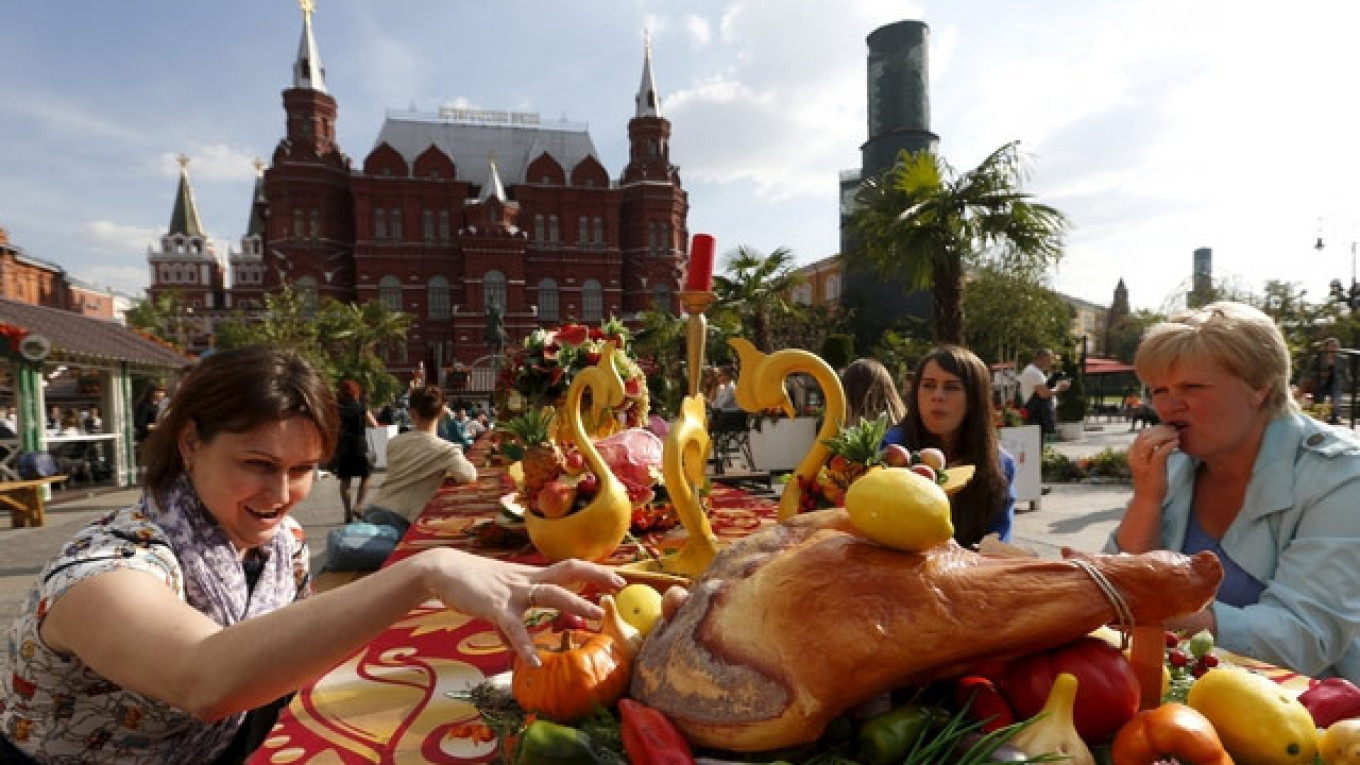The consumption habits of Russians share some striking parallels with those in developing countries. That information comes from "The EU in the World in 2015," a Eurostat report based on data from 2011-14. The study's authors compare the European Union with 15 G20 countries.
Russia leads in three categories: the relative share of expenses for food (30.7 percent), clothing and footwear (9.2 percent) and alcohol and tobacco (8.3 percent).
Interestingly, in the first two categories Russia is very close to India (food — 29.9 percent, clothing and footwear — 7.5 percent), and both have inexpensive housing and utilities — costing 13.2 percent and 10.3 percent of incomes respectively.
Of course, in countries where incomes are lower, people must pay a greater relative share of their wealth for the most essential of necessities — food.
The share of food expenses in developed countries with a high standard of living averages 10-15 percent. According to the Eurostat study, the citizens of Australia, Canada, the EU and South Korea devote slightly more than 10 percent of their incomes to it, and among European countries, the people of Luxembourg, Britain and Switzerland pay the lowest percentage for food.
However, it is probably not so much lower incomes but cultural differences that explain why Russians spend twice as much of their wealth on alcohol and tobacco. And it is not only that Russians have a passion for vodka. In fact, Moscow leaders subsidize alcohol prices in order to retain their popularity and their hold on power.
During an economic crisis, the share of expenditure on food typically increases, meaning that the gap between Russians and Europe is likely to grow in this area, as well as in the share spent on alcohol and tobacco.
According to polls, Russians clearly understand that their standard of living is falling, but remain convinced that the country is following the right path.
The structure of expenditures also illustrates the operation of more complex social differences in various countries. In most of the countries surveyed, housing and utilities payments accounted for approximately 25 percent of total incomes. Russia and India stand out sharply against that backdrop, and in the case of the former, government subsidies account for the difference.
There are also significant national differences in the relative share of expenditure for health care.
That outlay is traditionally very modest in Russia where the state heavily subsidizes medical services — although those subsidies decreased markedly last year, causing a sharp increase in the share of paid medical services.
Adding to that difference, Russians traditionally avoid going to the doctor except in emergencies.
By contrast, the citizens of economically developed countries take greater responsibility for their own health, spending far more on health insurance and preventative medicine.
The United States is unlike both Russia and Europe in this regard, its citizens spending only 6.8 percent of their incomes on food but 20.9 percent on health care. It seems that Americans are busy losing weight and getting medical treatment. If only Russians had such problems.
Nikolai Epple is a columnist at Vedomosti. This comment originally appeared in Vedomosti.
A Message from The Moscow Times:
Dear readers,
We are facing unprecedented challenges. Russia's Prosecutor General's Office has designated The Moscow Times as an "undesirable" organization, criminalizing our work and putting our staff at risk of prosecution. This follows our earlier unjust labeling as a "foreign agent."
These actions are direct attempts to silence independent journalism in Russia. The authorities claim our work "discredits the decisions of the Russian leadership." We see things differently: we strive to provide accurate, unbiased reporting on Russia.
We, the journalists of The Moscow Times, refuse to be silenced. But to continue our work, we need your help.
Your support, no matter how small, makes a world of difference. If you can, please support us monthly starting from just $2. It's quick to set up, and every contribution makes a significant impact.
By supporting The Moscow Times, you're defending open, independent journalism in the face of repression. Thank you for standing with us.
Remind me later.


